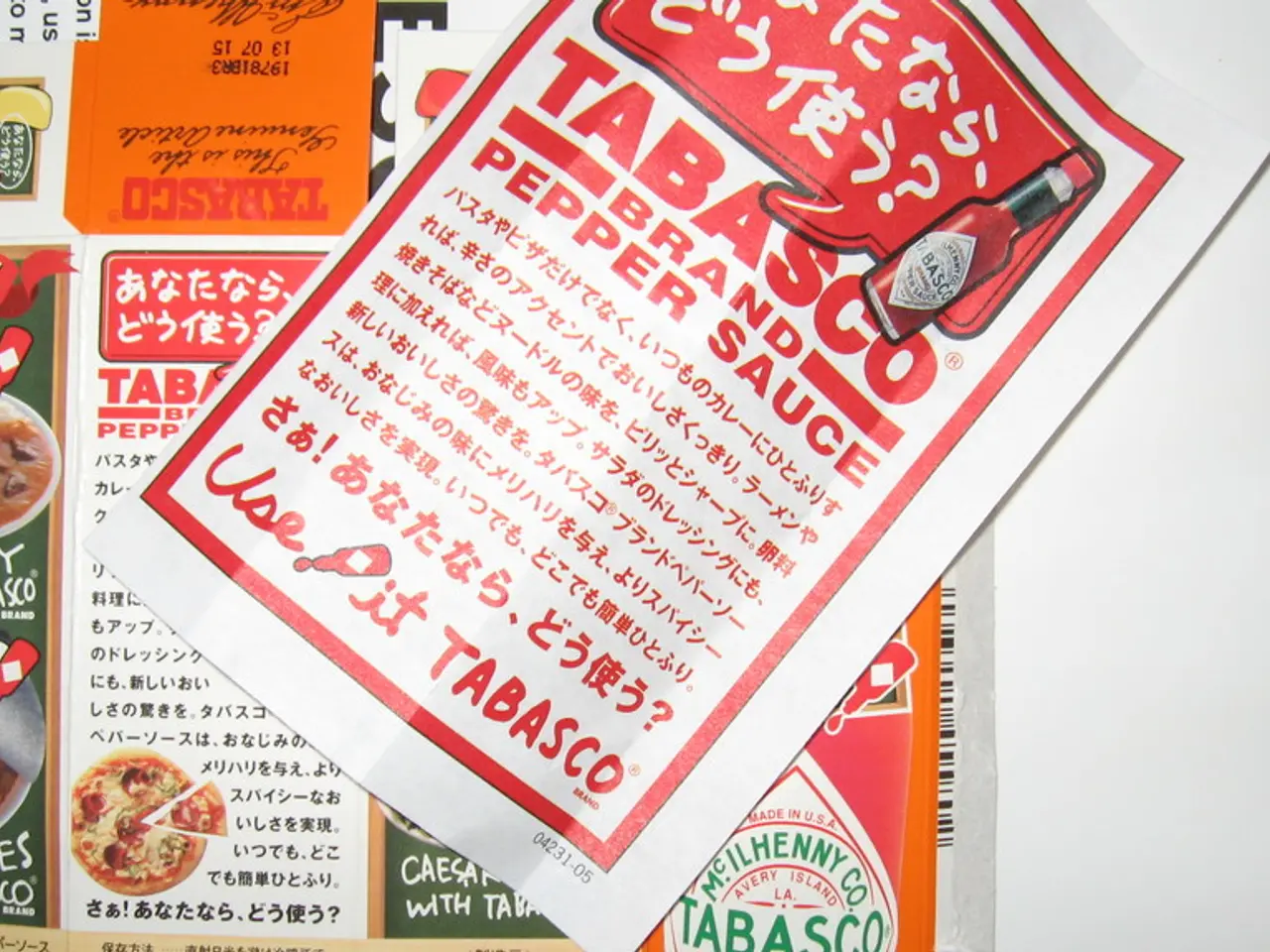Imposition of Customs Duties on Canadian Canola by the People's Republic of China Now in Effect
In a significant turn of events, China has imposed a provisional anti-dumping tariff of approximately 76% on Canadian canola seed imports, effective from mid-August 2025. This tariff, based on China's claim that Canadian canola is being "dumped" at unfairly low prices, has intensified economic tensions and threatens to disrupt one of Canada's major agricultural export markets [1][2][4].
The tariff, which comes a year after China launched an anti-dumping investigation into Canadian canola, has been met with rejection by Canadian canola producers and the federal government, who deny dumping allegations [1][3]. The move is widely viewed as a form of economic coercion linked to broader geopolitical and trade conflicts, especially concerning Canada’s earlier imposition of a 100% tariff on Chinese electric vehicles in 2024 and new restrictions on steel imports containing Chinese steel [1][3][4].
The tariff poses significant challenges to western Canadian farmers, where canola is the biggest cash crop. The Canadian government, led by Prime Minister Mark Carney, is preparing support packages for affected growers while seeking constructive dialogue with Chinese officials to resolve the dispute and diversify Canadian trade [1][3].
The exporters of Canadian canola are stated to have adhered to commercial rules, but the tariff is expected to result in millions of dollars in losses for the Canadian canola sector [2]. The tariffs are part of a series of trade disputes between China and Canada, and since then, both countries have imposed various taxes on each other's goods [5].
The tariffs on Canadian canola seeds are expected to further strain the already tense relations between China and Canada. Farmers and premiers of the Prairie provinces have called for constructive dialogue between the federal government and Chinese officials to address the issue [2].
This dispute reflects broader strategic and geopolitical frictions between the two countries. Experts suggest China targets Canada as a proxy in its trade tensions with the United States, as Canada and other Western nations coordinate to counter China's strategic industrial policies [3]. China has also filed complaints with the World Trade Organization (WTO) against Canadian steel tariffs, further indicating the multi-faceted nature of the Canada-China trade conflict [4][5].
However, some trade experts doubt the WTO dispute resolution mechanism will yield significant remedies due to complexities in enforcement and China's state-driven trade practices [4]. As of now, the trade dispute continues, with both countries seeking resolution while navigating the complexities of global trade relations.
[1] CBC News. (2025, August 15). China imposes 76% tariff on Canadian canola, escalating trade dispute. Retrieved from https://www.cbc.ca/news/business/china-canola-tariff-1.5681060
[2] The Globe and Mail. (2025, August 14). Canada's canola industry braces for $3-billion hit from China tariffs. Retrieved from https://www.theglobeandmail.com/business/article-canadas-canola-industry-braces-for-3-billion-hit-from-china-tariffs/
[3] The National Post. (2025, August 15). China's canola tariff is a warning shot in Canada-China trade relations. Retrieved from https://nationalpost.com/business/chinas-canola-tariff-is-a-warning-shot-in-canada-china-trade-relations
[4] Reuters. (2025, August 14). China files WTO complaint over Canada's steel tariffs, escalating trade tensions. Retrieved from https://www.reuters.com/business/china-files-wto-complaint-over-canadas-steel-tariffs-escalating-trade-tensions-2025-08-14/
[5] Financial Post. (2025, August 15). Canada-China trade dispute: What you need to know. Retrieved from https://financialpost.com/fp-comment/canada-china-trade-dispute-what-you-need-to-know
- The tariff imposed on Canadian canola by China is not just an industry issue, but a significant political event that has potential repercussions on the relationship between the two countries and their respective finance and general news sectors.
- The trade dispute between China and Canada, marked by tariffs on Canadian canola and Chinese steel, along with other goods, reflects broader geopolitical issues and strategic industrial policies, suggesting a broader, multifaceted conflict that extends beyond the agriculture industry.





